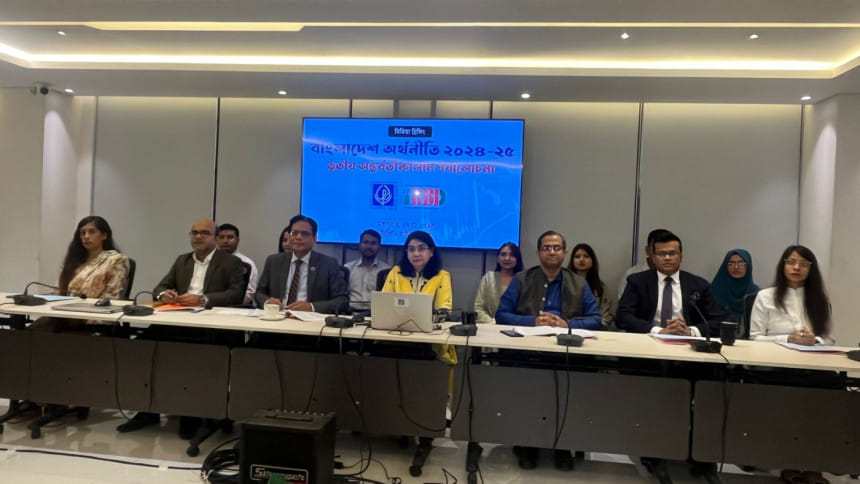Inflation likely to stay high in FY26: CPD

The Centre for Policy Dialogue (CPD) expressed concern that inflation in Bangladesh would remain above the government's target in the upcoming financial year, driven by persistent structural challenges and seasonal pressures.
"Inflation has remained above 9 percent since April last year, and food inflation in particular has been significantly high," said Fahmida Khatun, executive director of CPD, at a media briefing on the "State of the Bangladesh Economy in FY2024–25", held at its office today.
She attributed the sustained price pressures to a combination of factors, including weak supply chains, rising import costs, and market distortions stemming from limited competition.
"The sugar market, for instance, is dominated by just five importers. This level of concentration is indicative of cartel-like behaviour, which undermines market efficiency," she said.
The CPD noted that rural communities, where purchasing power is lower and access to cash is limited, are disproportionately affected by high food prices. Prices of essential commodities such as rice, edible oil, sugar, and meat have steadily increased since 2019, with notable spikes following supply shocks and import disruptions.
While the Bangladesh Bank has set an inflation target of 6 to 7 per cent for FY2025–26, the CPD projected that this would not be achievable without major policy reforms.
"Based on trend analysis from 2012 to 2025, our models show that bringing inflation down to 6.5 per cent within the next financial year is unlikely," said Fahmida.
She said that while inflation might ease slightly by February 2026, seasonal factors, such as the lean agricultural period and increased consumption during Ramadan, would likely drive it up again by mid-2026.
The think tank called for stronger coordination between monetary and fiscal policy, stricter enforcement by the competition commission, and greater transparency in market operations.
"We need to go beyond target-setting. Supply-side issues must be addressed, production increased, and the exchange rate must be stabilised. Market control by a few players must be broken," she said.
Fahmida said without urgent structural reforms, sustained inflation would continue to erode the purchasing power of low- and fixed-income groups.

 For all latest news, follow The Daily Star's Google News channel.
For all latest news, follow The Daily Star's Google News channel. 



Comments